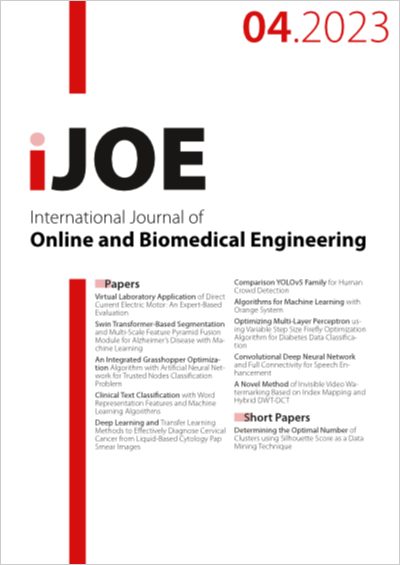Convolutional Deep Neural Network and Full Connectivity for Speech Enhancement
DOI:
https://doi.org/10.3991/ijoe.v19i04.37577Keywords:
Speech enhancement, deep learning, fully connected network, Convolutional network, signal-to-noise ratio (SNR).Abstract
The speech signal that is received in real-time has background noise and reverberations, which have an impact on the quality of speech. Therefore, it is crucial to reduce or eliminate the noise and increase the intelligibility and quality of speech signals. In this study, a proposed method that is the most effective and challenging in a low SNR environment for three types of noise are removed, including washing machine, traffic noise, and electric fan noise, and clean speech is recovered. with three samples of noise which are mixed and added to the clean speech signal with a lower level of SNR value fixed at (-5, 0, 5) dBs, that noise source takes equal weights. The enhancement of the corrupted speech signal is done by applying a fully connected and convolutional neural network-based denoising algorithm and comparing their performance. The proposed network shows that a fully connected network (FCN) has less elapsed time than a convolutional network (CNN) while still achieving better performance, demonstrating its applicability for an embedded system. Also, the results obtained show that, overall, the CNN is better than the FCN regarding maximum coloration, PSNR, MES, and STOI.
Downloads
Published
How to Cite
Issue
Section
License
Copyright (c) 2023 Ban M. Alameri, Inas Jawad Kadhim, Suha Qasim Hadi, Ali F. Hassoon, Mustafa Mahmood Abd, Prashan Premaratne

This work is licensed under a Creative Commons Attribution 4.0 International License.



